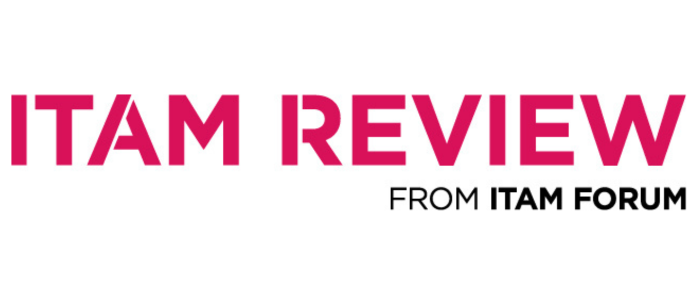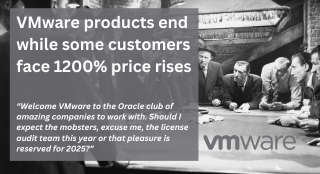Challenging Vendor Audit Costs
 Our organisation has recently gone through a lot of change – we have been bought out by a much larger organisation and are now a division that is being incorporated into a large, enterprise organisation. Whilst this is an exciting time for us, it has also been extremely challenging.
Our organisation has recently gone through a lot of change – we have been bought out by a much larger organisation and are now a division that is being incorporated into a large, enterprise organisation. Whilst this is an exciting time for us, it has also been extremely challenging.
The parent company are going through and have recently settled a number of audits with the usual suspects. No surprise there then – it would appear auditors don’t care about your size or industry, they will audit you. In a way I’m glad that they have had a tough time, as it means that my campaign to implement Software Asset Management on a global scale will have more meat on the bones.
They don’t have any form of SAM or license management in place, but since their experiences with audits they are actively looking for a dedicated resource and technology to manage all entities and the global estate.
There is one thing that has been concerning me, and that is the ‘financial demands’ initially made by the software vendor at the end of an audit.
Case #1 – Microsoft
Microsoft has literately just completed an audit of the parent organisation. Initially, they sent a bill of around £3.5million to true-up and address shortfalls. The size of the business now is estimated at about 17,000, but when Microsoft audited them it was about 11,000 seats. £3.5 million for a true-up seems like an awful lot of money.
They eventually settled at £1.1million after they called in their Microsoft supplier who has a number of Microsoft experts. They quickly found a number of errors in the report and a number of miss-calculations. As they didn’t have the internal expertise or resource, they were extremely close to signing a deal for £3.5 million.
Case #2 – IBM
Almost a textbook copy of the Microsoft case, IBM contacted the parent company demanding £170,000 for another shortfall. Unfortunately, the company paid before my team could see what they were requesting payment for.
It turned out that a few probing questions would have resulted in almost null payment as a lot of what IBM were claiming money for had already been paid for or was clearly communicated with IBM that the software was on longer in use!
Case #3 – Oracle
This case was actually us before we were acquired. We have a very small Oracle estate, but what we do have we really value – it is a key database solution within our organisation that we quite frankly cannot see replacing anytime soon.
However, Oracle released an updated version of one of their flagship products which also included a few new features. Our DB teams downloaded the updates and started using the new features. They also received an email – which on the look of it should of been forwarded to us – that they subsequently deleted as it appeared to be spam. This email contained information that advised the user that the use of feature A, B and C actually required a new license type as our existing licenses may not cover it.
Of course, we didn’t find out about this until Oracle contacted us and broke the wonderful news to us. Whilst I totally understand that they did communicate the change with us, it wasn’t in a clear or effective manner from a licensing point of view.
Lessons Learnt
To me the different scenarios bought out a lot of frustration for me, which is why I felt compelled to write a blog again. The software licensing world just seems to want to complicate itself even more, or trip you up at every corner. Just when you think you’re managing a certain vendor reasonably effectively and that it is under control, they change the pricing, bring out a new license metric or send you a large bill that makes very little sense.
Your Account Manager then seems confused as to why there is little or no relationship with them, and why we get angry when they call us asking to ‘improve the relationship so we can be more strategic and forward thinking’. Sure, we can talk, but I can’t shake the feeling you have a hidden agenda…
I went off on a tangent a little bit there, but the lessons learnt from these cases is that you should always challenge the software vendor, even if they seem 100% set and confident in the shortfall or bill figures they are sending over to you.
Even if you think they are right, challenge them. You may knock off a few pounds from the original bill. Also, it is important to remember that the compliance figures that they generate have some form of human input, and humans make mistakes!
Can’t find what you’re looking for?
More from ITAM News & Analysis
-
83% of IT Managers Believe their Asset Data is Highly Accurate - Only 35% of the Business Agrees
New and interesting research from WanAware hits at the nub of the disconnect many IT Asset Managers might feel about the value they deliver. The ‘Closing the ITAM Confidence Gap. 2025 Survey Insights for IT Leaders’ ... -
Microsoft Q4: Cloud and AI Results Drive Record Revenue
On 30th July 2025, Microsoft released its much-anticipated FY25 Q4 earnings report. The results follow a surprisingly strong Q3, which exceeded the expectations of some of the most optimistic investors. The latest Q4 results continue with ... -
10 Strategic Lessons for Tackling Compliance, Audits, and Software Licensing Risk in 2025
The ITAM Forum’s 2025 global ITAM research report in partnership with Azul reveals some fascinating insights into the financial, operational, and compliance risks involved in software licensing and audits. This article provides a high-level overview of ...
Podcast
ITAM training
Similar Posts
-
ITAMantics - April 2024
Welcome to the April 2024 edition of ITAMantics, our monthly news podcast where we discuss the biggest ITAM stories from the last month. George is joined this month by AJ Witt and Ryan Stefani. Stories tackled ... -
ITAM & AI, FinOps, Containers, ESG, security: The many ways in which ITAM has matured beyond its roots
ITAM, AI, FinOps, Containers, ESG, security… Back in January I wrote about my picks from the agenda for Wisdom NA 2024. Building up to the event I also interviewed Eva Louis about the intricacy of IT ... -
Another Quest audit ends up in court
A Quest Software audit is in court (again). Here I am, back with another story of a software vendor treating one of their customers in such a way that the whole thing ends up in a ... -
As some VMware products come to an end some customers face 1200% price rises
As you may have seen, following the completion of the Broadcom acquisition, “VMware by Broadcom” are no longer offering perpetual licenses for their products as they move to a subscription model. They have also moved to ...




